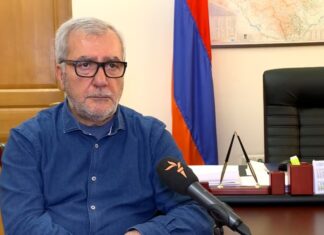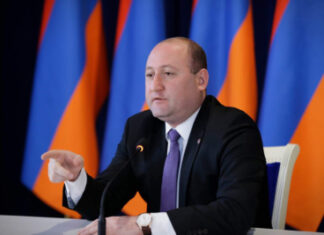By Davit Safaryan
Special to the Mirror-Spectator
Experts interested in the improvement of Armenian-Turkish and Armenian-Azerbaijani relations supposed that early parliamentary elections in Armenia would lead to intense processes of re-opening of closed communication routes and borders, and to launching various new projects of economic cooperation in the South Caucasus. President Vladimir Putin is consistently implementing a policy of reopening communications between Armenia and Azerbaijan with the goal of unlocking the full potential of trade and economic cooperation between Russia, Turkey and Iran. In this respect, it would be interesting to analyze how the process of Armenian-Turkish dialogue might develop, considering that not too long ago the main obstacle in its way was the unresolved Nagorno-Karabakh conflict. Under these new circumstances it is worth recalling some basic details of the “Football Diplomacy” of 2009-2011, which may serve as a precedent for our diplomacy and political thought in the course of renewing that process.
Current State of Regulation of the Nagorno-Karabakh Conflict
At the summit of Organization of the Black Sea Economic Cooperation (BSEC) held in 2010, the foreign minister of Turkey was attempting to convince his Armenian counterparts to concede just one district of the “Liberated Areas” so that Turkey could announce the opening of the Armenian-Turkish border and its positive attitude towards the establishment of diplomatic relations. He was turned down. Thus the Protocols signed in Zurich were suspended by the Great National Assembly of Turkey.
Presently, as we all understand, there is a qualitatively different situation in the Nagorno-Karabakh conflict zone. The Armenian forces have surrendered 7 districts that passed under Armenian control as a result of military operations that took place 27 years ago, and the entire frontline between Artsakh and Azerbaijan is controlled by a Russian peacemaker brigade. At first glance, it seems that there is no obstacle for Turkey to announce the establishment of diplomatic relations and open its borders with Armenia. However, let me remind readers that both diplomatic initiatives – the so-called “Armenian-Turkish Reconciliation Commission” and “Football Diplomacy,” had been pushed forward due to the urging of the US as well as diplomatic pressure on Armenia, and Turkish enthusiasm was greatly conditioned by a desire to neutralize the influence of American mediation by the simulation of an active process.










